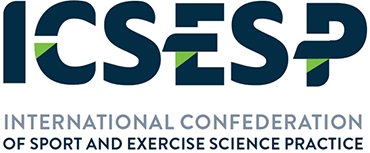CPD and Event opportunities
Professional Development Opportunities
The Menstrual Cycle and Exercise
2024
Online
By Raul Cosme Ramos Prado, M.Sc.; Monica Yuri Takito, Ph.D.; Ricardo Yukio Asano, Ph.D.; Marcus W. Kilpatrick, Ph.D., FACSM
This course explores the impact of the menstrual cycle on psychological responses and exercise experiences, promoting individualized exercise prescriptions based on clients’ symptoms. Learn to better support your clients in the achievement of their goals by recognizing and understanding the impact of the menstrual cycle on exercise routines.
Understanding Pancreatic Cancer-mediated Changes
2024
Online
Presented by Erin Talbert, Ph.D., and Ashley Freeman, M.S.
Learn about changes in body composition in pancreatic cancer patients, including some new data suggesting sex differences in these changes.
This course was developed using content from ACSM’s 2023 From Around the Field webinar series.
Learning Objectives:
- Understand what we do and do not know about body composition and muscle mass in patients with cancer cachexia.
- Discuss the heterogeneity of likely causes of body composition changes in pancreatic cancer patients.
- Explore the implications of this heterogeneity.
Sickle Cell Trait Risks: Safeguarding Team Sport Athletes
2024
Online
Presented by Susan Yeargin, Ph.D., ATC
This course covers the pathophysiology and epidemiology of exertional sickling and the prevalence of sickle cell trait (SCT) in U.S. athletes. It also includes a discussion of current screening mandates.
This course was developed using content from ACSM’s 2023 From Around the Field webinar series.
Learning Objectives:
- Identify prevalence of SCT in team sport athletes using different screening options.
- Summarize pathophysiological events of exertional sickling that can lead to death.
- Compare and contrast research reporting sudden death due to exertional sickling in team sport settings.
Cardiorespiratory Muscle Response to Chemotherapy & Exercise
2024
Online
Presented by Ashley Smuder, Ph.D., and Branden Nguyen
This course explores how doxorubicin chemotherapy can impact cardiorespiratory system function and covers our current understanding of how exercise training may help limit these adverse effects.
This course was developed using content from ACSM’s 2023 From Around the Field webinar series.
Learning Objectives:
- Identify the mechanisms that promote cardiac dysfunction, muscle weakness and fatigue following doxorubicin chemotherapy treatment.
- Summarize the current understanding of the protective effects of exercise to prevent chemotherapy-related muscle toxicity.
- Explore preclinical versus clinical exercise outcomes related to exercise and cancer treatment.
The Neurobiology of Physical Activity Motivation
2024
Online
Presented by Ayland Letsinger, Ph.D.
This course covers the widespread issue of physical inactivity and the biology behind it. Dr. Letsinger will provide an overview of the biological promoters of physical activity and how wheel-running mice are an effective model for understanding these mechanisms.
This course was developed using content from ACSM’s 2023 From Around the Field webinar series.
Learning Objectives:
- Highlight the link between food and physical activity.
- Introduce advanced techniques used in neuroscience.
- Discuss the increased focus in neurobiology in kinesiology research and genetics.
Fundamentals of Implementation Science and Exercise Oncology
2024
Online
Presented by Mary Kennedy, Ph.D., ACSM-EP
This course covers the fundamentals of implementation science and discusses their importance in the field of exercise oncology, presenting research findings from real-world clinical implementation trials along with a summary of key next steps for the field.
This course was developed using content from ACSM’s 2023 From Around the Field webinar series.
Learning Objectives:
- Identify the difference between traditional research and implementation research.
- Recognize the value of including implementation outcomes in exercise oncology research to move the field forward.
- Become familiar with key resources to help guide exercise oncology researchers to integrate an implementation focus into their work.


